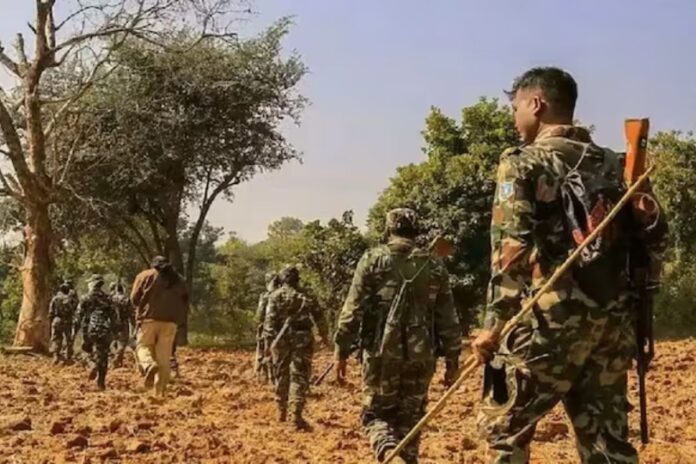Karnataka is making strides toward becoming naxal-free Karnataka, with the state government intensifying its efforts to bring Maoists into the mainstream. This initiative comes after reports indicated a growing willingness among Maoists to surrender, marking a pivotal moment in the state’s fight against left-wing extremism. Karnataka’s Home Minister G Parameshwara and Chief Minister Siddaramaiah are leading the charge, promising fair treatment and rehabilitation for those who agree to lay down arms and integrate into society.
The state’s approach to addressing Maoist insurgency has been lauded as both strategic and humane, with a focus on rehabilitation over retribution. This renewed vigour aligns with the state’s broader objective of achieving peace and stability in regions previously affected by Naxal activity.
Surrender Process Gains Traction
Home Minister G Parameshwara recently confirmed that the process of surrender is in its advanced stages. “The process (for surrender) is underway, and we need to finalize it. After the Vikram Gowda incident (encounter), we called upon them (Maoists/Naxals) to surrender. Officials have been working in this direction at various levels, and now we feel it has reached an advanced stage,” he said. The minister’s optimism stems from ongoing talks and the government’s willingness to address the concerns raised by Maoists.
The surrender policy being implemented is not entirely new. The government is revisiting initiatives that were first introduced during the tenure of former Chief Minister S M Krishna in the early 2000s. These policies, aimed at offering Maoists a way out of the insurgency, are being tailored to address contemporary challenges. Parameshwara added, “Similar efforts were made in 2000-2001 when S M Krishna was the Chief Minister. These will be reviewed, as those willing to surrender have also made certain requests.”
The Role Of The Vikram Gowda Incident
A significant turning point in Karnataka’s anti-Naxal efforts was the encounter that led to the death of Maoist leader Vikram Gowda on November 18, 2024, in the Udupi district. Gowda’s demise not only disrupted the operational capabilities of Maoist groups in the region but also prompted many insurgents to reconsider their stance.
Following this incident, Chief Minister Siddaramaiah publicly appealed to Maoists to surrender, assuring them of fair treatment and effective implementation of the state’s surrender policy. He emphasized the importance of integrating these individuals into the democratic framework, offering them an opportunity to rebuild their lives.
Upcoming Surrenders In Chikkamagaluru
The surrender of six long-underground Maoists in Chikkamagaluru marks a significant step in the state’s efforts. These individuals, including Mundaguru Latha, Sundari Kutlooru, Vanajakshi Balehole, Marappa Aroli, K Vasantha, and T N Jeesh, have been in hiding for decades. Their decision to surrender represents not only a personal transformation but also a broader shift in the dynamics of Naxal activity in Karnataka.
The Civil Forum for Peace, a prominent advocacy group, has played a crucial role in facilitating this surrender. Working closely with the government, the forum has ensured that the concerns of these individuals—such as harassment by the Forest Department in the Malnad region, land for tribal communities, and housing for Dalits—have been addressed. K L Ashok, a leader of the forum, emphasized the importance of treating these individuals with dignity, stating, “The surrendered individuals must be treated with respect and dignity, a concern we strongly emphasized.”
Transitioning To Peaceful Advocacy
Unlike traditional surrender patterns, where individuals are merely absorbed into society, this initiative encourages Maoists to take on roles as peaceful advocates for social change. This marks a departure from violence and a move toward addressing issues through democratic means.
The government’s commitment to this transition is evident in its assurances. Chief Minister Siddaramaiah has promised that mistakes made in the past—such as inadequate support for surrendered Naxals—will not be repeated. “Written assurances will be provided to ensure fairness and dignity,” he said, addressing concerns raised by civil society groups.
The six individuals set to surrender are not alone in their journey. Their transition will be closely monitored, and the government is committed to providing the resources necessary for their reintegration. This includes skill development, education, and employment opportunities, ensuring that they can contribute positively to society.
A Broader Vision For Karnataka
The state’s efforts to become Naxal-free are part of a larger vision to ensure peace and development in historically underserved regions. The government’s strategy includes addressing the root causes of Naxalism, such as poverty, land disputes, and lack of access to basic services. By focusing on these systemic issues, Karnataka aims to not only eliminate Naxal activity but also prevent its resurgence.
This initiative also underscores the importance of collaboration between the government and civil society. The role of organizations like the Civil Forum for Peace highlights the potential for partnerships in addressing complex social challenges.
As Karnataka moves closer to achieving its goal of becoming Naxal-free, the state sets a precedent for other regions grappling with similar challenges. The surrender of Maoists willing to reintegrate into society is not just a victory for law and order but also a testament to the power of rehabilitation and dialogue in resolving conflicts.
The government’s approach, rooted in compassion and pragmatism, offers hope for a future where peace and progress go hand in hand. With sustained efforts, Karnataka is poised to set an example for the nation in overcoming insurgency through inclusive and thoughtful governance.

